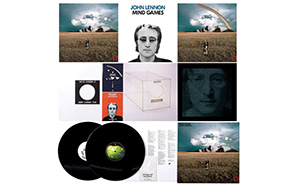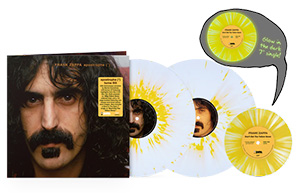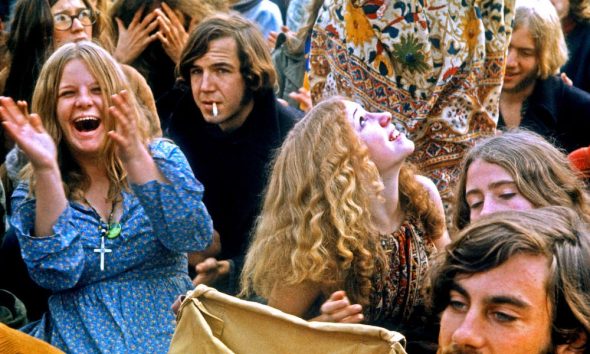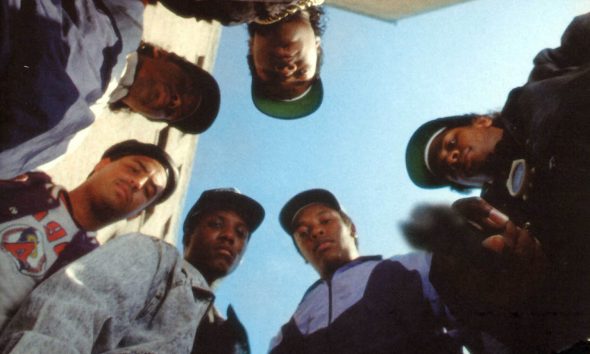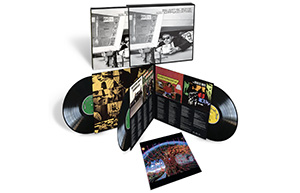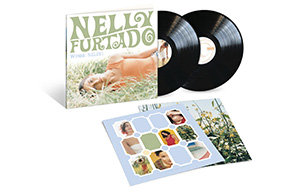‘19th Nervous Breakdown’: The Story Behind The Rolling Stones Song
The song was a damning diatribe that lifted the lid on high society’s dark underbelly.
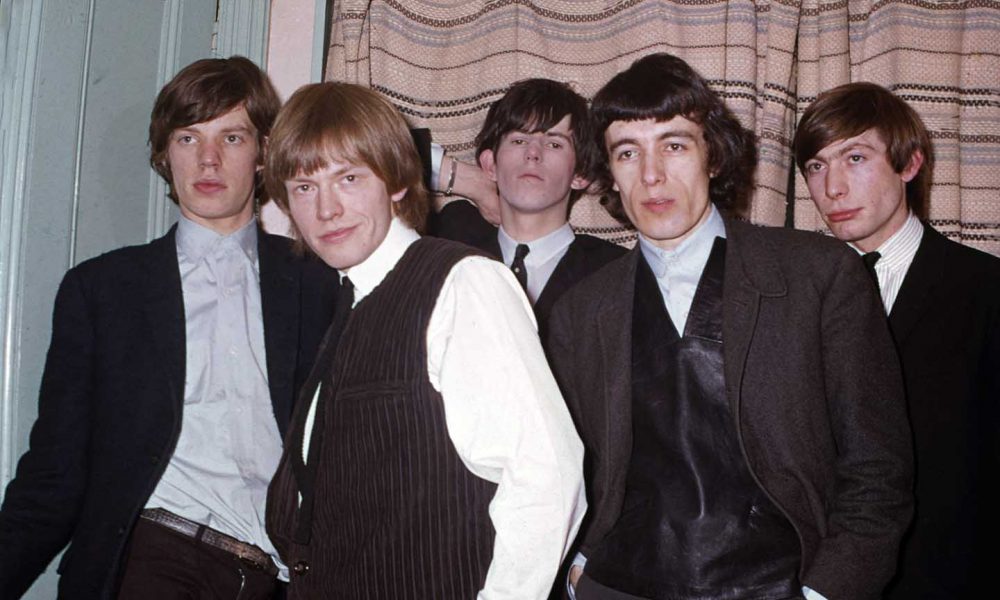
“Dunno about you blokes,” an exhausted Mick Jagger reportedly told his fellow Rolling Stones at the end of 1965, “but I feel about ready for my 19th nervous breakdown.”
His weariness was justified, coming as it did after not just an unrelenting five weeks of performances on the band’s second US tour of the year, but 1965 itself had been particularly demanding for the Stones, and saw them pursuing their successes internationally, with little respite along the way.
Somehow, despite their grueling schedule, the group had found spare moments to write and record the singles that were regularly demanded of them, and had found their stock had substantially risen after the release of “(I Can’t Get No) Satisfaction” that June, when it topped the charts around the world, and greased the wheels of their productivity in the months ahead.
Listen to The Rolling Stones’ “19th Nervous Breakdown” now.
That winter, as they traveled from city to city and state to state, Jagger and guitarist Keith Richards intermittently worked on a new song inspired by the singer’s unintentional turn of phrase and its alliterative appeal.
On December 5th, the tour concluded in Los Angeles. Staying on in the city afterward, the band arranged for three days of recording sessions at RCA Studios on Sunset Boulevard, the same location that had produced “Satisfaction” and “Get Off My Cloud” earlier that year. “We loved this studio because it was custom-built with no windows,” bassist Bill Wyman noted in his autobiography. “We neither knew nor cared whether it was night or day but just kept playing on.”
Under the auspices of engineer Dave Hassinger and the Stones’ producer/manager Andrew Loog Oldham, ten tracks were put to tape in those three days, the bulk of which would form the group’s next album, Aftermath. It was here, also, that their next single – the freshly-written “19th Nervous Breakdown” – was recorded.
The recording
In the course of writing “19th Nervous Breakdown,” Jagger’s study of neurosis had turned from his own to that of a spoiled debutante – the kind of local dignitaries the band had encountered at receptions or in the high society circles Jagger was increasingly moving in. Here, Jagger takes aim at a self-indulgent girl whose detached parents had showered her with material possessions rather than love when she was younger (“You were always spoiled with a thousand toys / But still you cried all night”), and now grown, was dissatisfied and incapable of coping with the harsh realities of life.
Rather than empathize with her predicament, Jagger’s scowling resentment is all too evident as he heralds the imminent arrival of her inevitable breakdown; “Here it comes,” he repeatedly teases. The source of his aggrievance, we learn, is that the girl’s inherent narcissism had once threatened to affect his own, more sanguine, frame of mind. “On our first trip, I tried so hard to rearrange your mind,” he explains, dropping in a subtle drug reference that wouldn’t be picked up by the mainstream upon release, “but after a while, I realized you were disarranging mine.”
Taking his cue from Bob Dylan, whose brilliantly articulate “Like A Rolling Stone” had gone head-to-head on the charts with “Satisfaction” that summer, Jagger was drawing from the darker side of the everyday life he saw around him, pulling the covers off a part of society whose transgressions went largely unspoken – certainly in pop music – until now.
“To write about anything other than the normal run-of-the-mill love clichés was considered very outre and it was never touched,” Jagger would say. “Anything outside that would shock people. So songs like ‘19th Nervous Breakdown’ were slightly jarring to people. But I guess they soon got used to it.”
Matching the searing intensity of the lyrics is Keith’s insistent guitar, which hooks the listener from the off. “Intros were always very important to me,” he’d say. “It was what grabbed you. It made you want to see what’s coming next… In those days when we were recording, it was, ‘Nice song. How does it start?’ The first (riff) was probably ‘19th Nervous Breakdown.’ After that, the intros sort of became my job, to set the pace and set the tone of the song.”
The band comes crashing in, and guitarist Brian Jones sets a cool rhythm with a lick lifted directly from Bo Diddley’s “Diddley Daddy,” a song the Stones had recorded back in 1963 (“It was really kind of like a tribute,” Keith would attest). Bill Wyman’s low-end bass steadily trails the dueling guitars’ abrasive edges, while Charlie Watts furiously hammers double time on his ride cymbal, ensuring the whole song sounds as manic as its tormented protagonist.
In the last 30 seconds of the song, it’s Wyman’s tumbling bass runs that pointedly allude to the girl’s mental deterioration and fate. “Andrew (Oldham) said something like, ‘Why don’t you do something at the end there, some kind of a lick that will fill up the space between the vocals and the band,’” Wyman remembered. “I just bounced the string with the top of my finger on the pickup, and ran my finger down the string. That is what created that so-called ‘dive-bombing’ sound.”
The release
First released in the UK on February 4th, 1966, “19th Nervous Breakdown” followed in the US on the 12th, the day after the band performed the song live on The Ed Sullivan Show. The song’s caustic condemnations did little to hinder its popularity, as it sailed to the top of the British charts, and nestled at No. 2 in the States.
Brash and uncompromising, “19th Nervous Breakdown” exemplified the Stones’ astute understanding and appreciation of American culture, something that was keenly developed over the increasing amount of time they had spent in the country. “The Stones, in their lyrics and attitude, were the only UK import that seemed to be at one with what ailed America,” wrote Andrew Oldham. “We cocked our guns and guitars and took aim at convention… The Stones were not intimidated. They got America down in America. The Beatles took over America, but the Stones belonged to it.”
One listener in Britain, however, particularly felt the impact of the song’s indomitable force. “Andrew played me ‘19th Nervous Breakdown,’” recalled The Who’s Pete Townshend. “Great sound. I remember being very inspired by this, going home and recording a song of my own that evoked something of the spirit I’d heard. ‘Substitute’ was what I went home and recorded.”
Surprisingly, though, despite the song being a firm favorite of the Stones’ fans and peers alike, it is not held in such high regard by its authors. “‘19th Nervous Breakdown,’” opined Jagger in 2003, “is not very good, really.” His feelings have been borne out in the song’s scant appearances on stage; since 1967, the Stones have only ever played it 44 times – half of which were in 1997 alone.
Still, when others extol the track’s merits, Jagger is happy to cede his disapproval – such as when he performed it with Foo Fighters on Saturday Night Live in 2012, duetting in fine fettle with frontman Dave Grohl.
When the single appeared in 1966, it prefaced the April release of Aftermath, and though the song doesn’t appear on the album, it stands as an intrepid signpost that pointed in the direction that the Stones would roll. Aftermath would be the first Rolling Stones album in which every track was a Jagger/Richards original. The record’s expansive progression of their blues roots established the group as trailblazing countercultural icons, and sealed their place alongside The Beatles as the most influential group of the 1960s.


